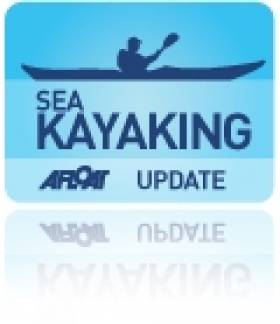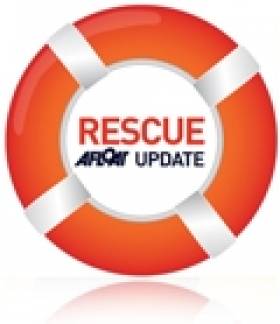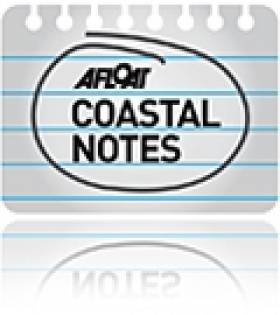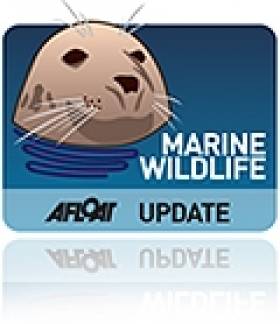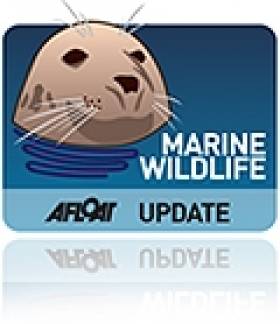Displaying items by tag: Lough Hyne
Man Dies While Swimming in Sea Lough Near Skibbereen
RTÉ News reports that a man in his 50s has died after getting into difficulty while swimming near Skibbereen yesterday (Sunday 1 May).
It’s believed the man may have suffered a heart attack while the water in Lough Hyne around lunchtime. He was known locally as a keen swimmer and a regular in the West Cork sea lough. RTÉ News has more on the story HERE.
Lough Hyne Kayaking Features On TV Down Under
#Kayaking - Jim Kennedy is already reknowned in these islands as a former kayaking champion and long-time paddling guide – but now he's a TV star in Australia to boot.
As the Southern Star reports, the founder of Atlantic Sea Kayaking recently welcomed Trevor Cochrane, host of the Nine Network's ExploreTV, with a tour of the placid waters of Lough Hyne in West Cork.
Cochrane also visits nearby Baltimore, relating some of its storied maritime history, while singing the praises of the Irish coast's rugged beauty.
West Cork Kayakers Rescue Lough Hyne Swimmer
#Rescue - The Southern Star reports on the rescue of a swimmer in Lough Hyne by two passing kayakers last Sunday (27 July).
West Cork Kayaking Club members Declan McCarthy and David Sprott were within earshot of the man's call for help as he got into difficulty off Castle Island and rushed to his aid.
Another swimmer nearby joined the kayakers in guiding the man to the safety of the shore.
The Southern Star has more on the story HERE.
Lough Hyne Flint A Big Find For Archaeologists
#CoastalNotes - The recent discovery of a piece of worked flint at Lough Hyne on the West Cork coast could unlock the secrets of 4,000 years of settlement in the area.
Cork's Southern Star reports that the archaeological find at Ballinard on the marine lake and nature reserve is what remains of a core piece of flint "which would have been worked on, or knapped, by a skilled stone worker" to create tools such as blades and arrowheads.
It's unknown how the flint came to be in the area, as it is not a rock common to West Cork, though it is supposed that it arrived either as a result of trade with people from the Antrim area - Ireland's main source of flint - or brought ashore as 'moonstones' by fishermen off what is now Galley Head.
The Southern Star has much more on the story HERE.
First Sighting of a Dolphin in an Irish Lake
#MARINE WILDLIFE - The first recorded sighting of a dolphin in an Irish lake has been reported by the Irish Whale and Dolphin Group (IWDG), according to The Irish Times.
The dolphin was spotted in Lough Hyne, a saltwater lake near Baltimore in Co Cork by Skibbereen-based kayaking instructor Jim Kennedy, who filmed it over a number of days.
"To the best of my knowledge, and I’m open to correction, this is the first validated record of a cetacean using an Irish lake," said the IWDG's Pádraig Whooley.
Though there have been no further sightings since then, there is nothing to indicate that the dolphin has yet left the lough for the open sea.
As previously reported on Afloat.ie, Lough Hyne was also recently visited by a 13-metre fin whale that was sadly found beached in stormy conditions on the Sligo coast this week.
The Irish Times has more on the story HERE.
Whale Carcass Battered by Strong Sea Gales in Sligo
#MARINE WILDLIFE - The Irish Independent reports on the carcass of a whale that was strewn on a beach in Co Sligo after it was swept into rocks by Monday's gale-force winds.
The 13-metre fin whale had been seen recently on a number of occasions in Lough Hyne, a saltwater lake near Baltimore in Co Cork.
On Monday it was spotted at Raughley in the north of Sligo, where it was found beached by Jimmy and Viera Stupakova after the treacherous conditions of the early part of this week.
The find marks the fifth recorded stranding of the species in Irish waters, and the first validated record of a fin whale in Co Sligo, according to OutdoorCommunity.ie.
It is not yet clear how the juvenile met its end, though initial investigations point to the whale not being long dead.
The Irish Independent has more on the story, including video, HERE.


























